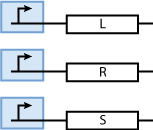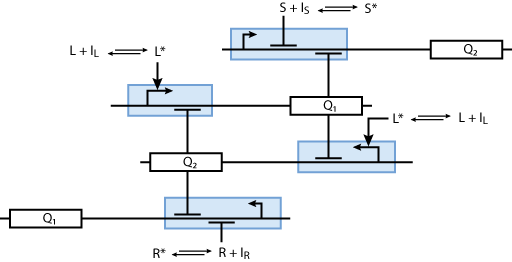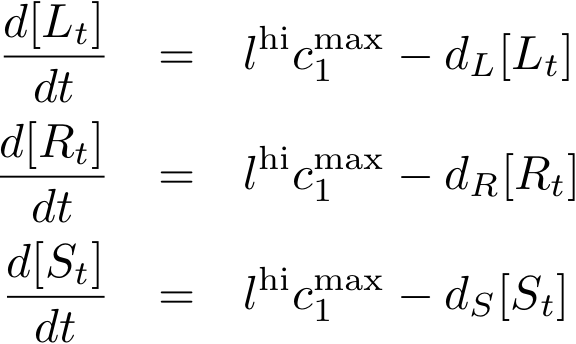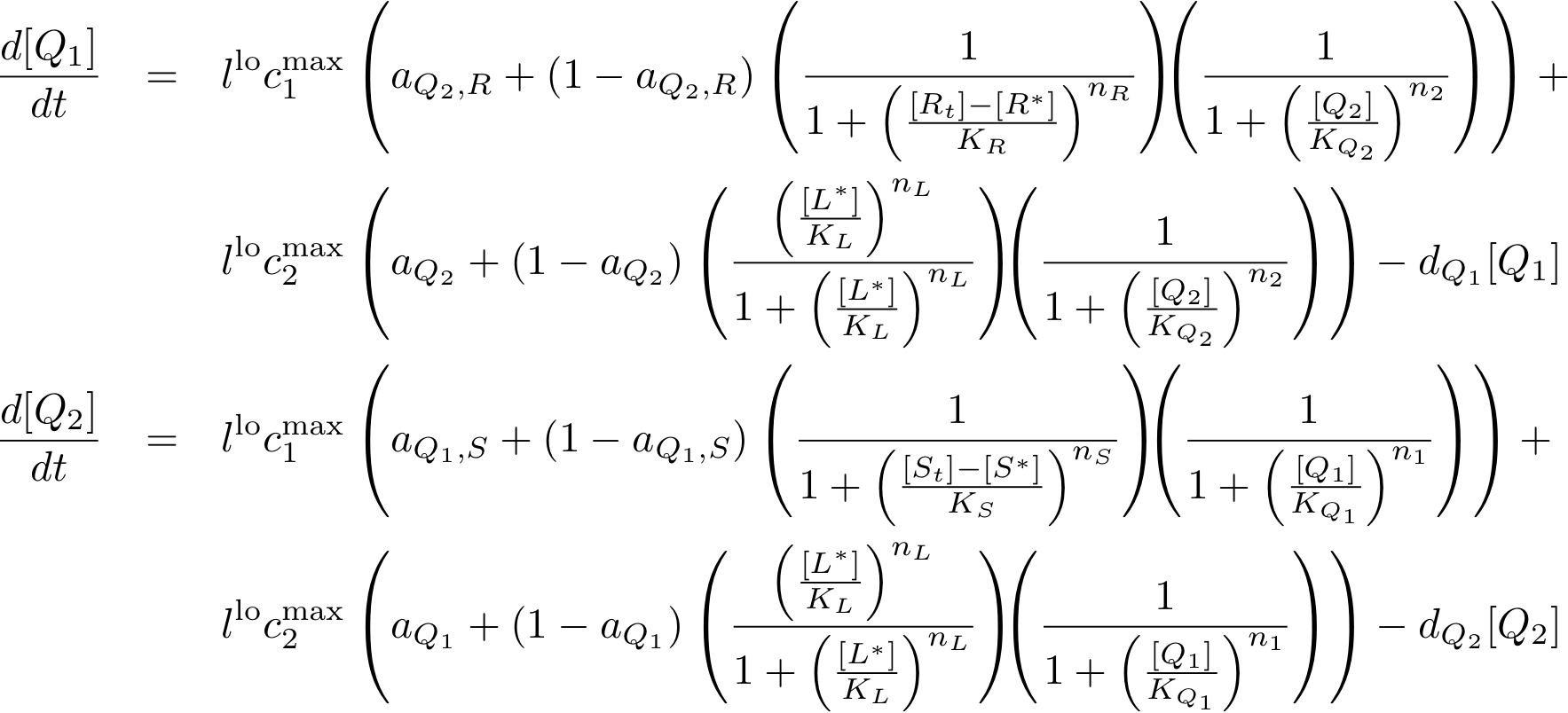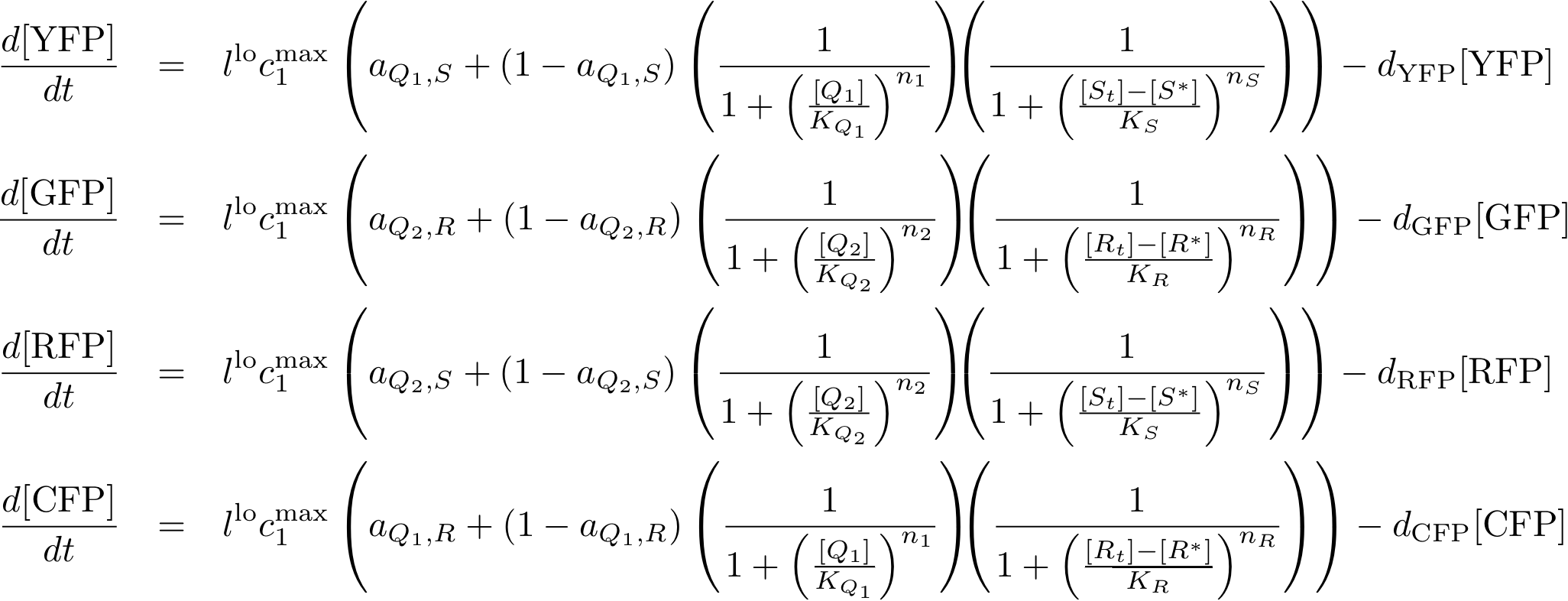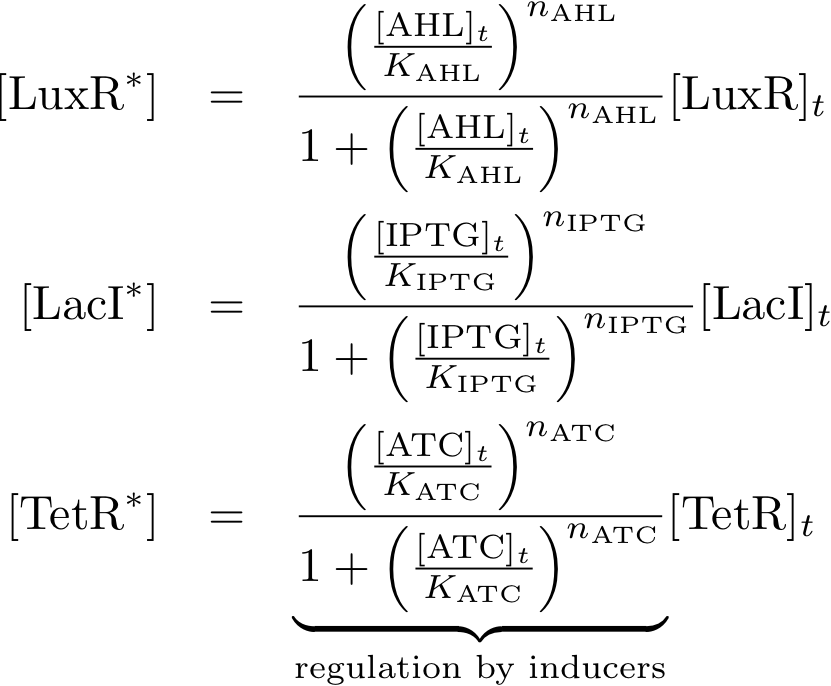ETHZ/Simulations
From 2007.igem.org
(→Comments) |
(→Model Parameters) |
||
| Line 124: | Line 124: | ||
| | | | ||
| degradation of CFP | | degradation of CFP | ||
| - | |||
| - | |||
| - | |||
| - | |||
| - | |||
| - | |||
| - | |||
| - | |||
| - | |||
| - | |||
| - | |||
| - | |||
| - | |||
| - | |||
| - | |||
| - | |||
| - | |||
| - | |||
| - | |||
| - | |||
| - | |||
| - | |||
| - | |||
| - | |||
| - | |||
| - | |||
| - | |||
| - | |||
| - | |||
| - | |||
| - | |||
| - | |||
| - | |||
| - | |||
| - | |||
| - | |||
| - | |||
| - | |||
| - | |||
| - | |||
| - | |||
| - | |||
| - | |||
| - | |||
| - | |||
| - | |||
| - | |||
| - | |||
| - | |||
| - | |||
| - | |||
| - | |||
|- | |- | ||
| K<sub>R</sub> | | K<sub>R</sub> | ||
Revision as of 08:20, 24 September 2007
Contents |
Basic Model
Constitutively produced proteins
Learning system
Reporter system
System Equations
Constitutively produced proteins
Learning system
Reporter system
Allosteric regulation
Comments
Note that the three constitutively produced proteins R, S and L exist in two different forms: as free proteins and in complexes they build with IR, IS and IL, respectively. The total amount of protein is denoted with a subscript t (e.g. Rt) in the above formulas. The amount of protein existing as complex is denoted with a superscript * (e.g. R*). The difference is the amount of free protein (e.g. Rt - R*).
In this new formulation of the model equations, the characterization is more amenable to human interpretation (although equivalent to the previous formuation). The promoters are now characterized by their maximum transcription rate (cimax) and the basic production (aX), which gives the 'leakage' if the gene is fully inhibited. Note that in the given mathematical formulation the basic production is specified as a percentage of the max. transcription rate and is therefore unitless.
Model Parameters
| Parameter | Value | Description | Comments |
|---|---|---|---|
| c1max | max. transcription rate of constitutive promoter | ||
| c2max | max. transcription rate of luxR-activated promoter | ||
| aQ2,R | 0.1 - 0.2 | basic production of Q2/R-inhibited genes | Reference: discussion with Jörg and Sven |
| aQ2 | 0.1 - 0.2 | basic production of Q2-inhibited genes | Reference: discussion with Jörg and Sven |
| aQ1,S | 0.1 - 0.2 | basic production of Q1/S-inhibited genes | Reference: discussion with Jörg and Sven |
| aQ1 | 0.1 - 0.2 | basic production of Q1-inhibited genes | Reference: discussion with Jörg and Sven |
| aQ2,S | 0.1 - 0.2 | basic production of Q2/S-inhibited genes | Reference: discussion with Jörg and Sven |
| aQ1,R | 0.1 - 0.2 | basic production of Q1/R-inhibited genes | Reference: discussion with Jörg and Sven |
| dR | 0.06 | degradation of lacI | Ref. [4] --please only add parameter values with proper dimensions, a number like this is useless (Uhrm 04:43, 13 September 2007 (EDT))-- |
| dS | 1e-5 [pro sec] | degradation of tetR | Ref bs2000 Nature 405:590-593 |
| dL | degradation of luxR | ||
| dQ1 | 7e-4 [pro sec] | degradation of cI | Ref arm1998 Genetics 149:1633-1648 |
| dQ2 | degradation of p22cII | ||
| dYFP | degradation of YFP | ||
| dGFP | degradation of GFP | ||
| dRFP | degradation of RFP | ||
| dCFP | degradation of CFP | ||
| KR | 1.3e-3 - 2e-3 [mM/h] | lacI repressor dissociation constant | lower value is from Ref. [2], higher value is from Ref. [5] |
| KIR | 1.5e-10 [mM/h] | IPTG-lacI repressor dissociation constant | Ref. [5] |
| KS | tetR repressor dissociation constant | ||
| KIS | aTc-tetR repressor dissociation constant | ||
| KL | luxR activator dissociation constant | ||
| KIL | AHL-luxR activator dissociation constant | ||
| KQ1 | 2e-3 [mM/h] | cI repressor dissociation constant | Ref. [5] |
| KQ2 | p22cII repressor dissociation constant | ||
| nR | 1 | lacI repressor Hill cooperativity | Ref. [5] |
| nIR | 2 | IPTG-lacI repressor Hill cooperativity | Ref. [5] |
| nS | 3 | tetR repressor Hill cooperativity | Ref. [3] |
| nIS | aTc-tetR repressor Hill cooperativity | ||
| nL | 1 | luxR activator Hill cooperativity | Ref. [3] |
| nIL | 1 | AHL-luxR activator Hill cooperativity | Ref. [3] |
| nQ1 | 1.9 | cI repressor Hill cooperativity | Ref. [5] |
| nQ2 | p22cII repressor Hill cooperativity |
References
- A synthetic time-delay circuit in mammalian cells and mice (http://www.pnas.org/cgi/content/abstract/104/8/2643)
- Detailed map of a cis-regulatory input function (http://www.pnas.org/cgi/content/full/100/13/7702?ck=nck)
- Parameter Estimation for two synthetic gene networks (http://ieeexplore.ieee.org/iel5/9711/30654/01416417.pdf)
- Supplementary on-line information for "A Synthetic gene-metabolic oscillator" (no link)
- Genetic network driven control of PHBV copolymer composition (http://doi:10.1016/j.jbiotec.2005.08.030)
Variable Mapping
| Variable | Compound |
|---|---|
| R | lacI |
| IR | IPTG |
| S | tetR |
| IS | aTc |
| L | luxR |
| IL | AHL |
| Q1 | cI |
| Q2 | p22cII |
